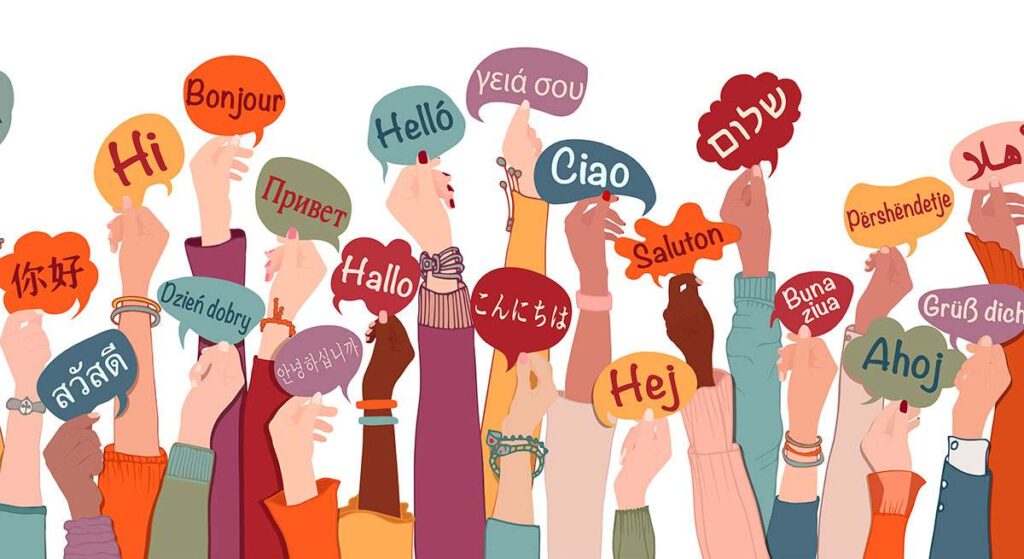Translations of texts from Spanish to Portuguese play a vital role in fostering cultural exchange. In fact, they strengthen connections between countries where Spanish is spoken and those where Portuguese is the official language. Although both languages share many similarities, they also have key differences that can challenge translators. As a result, high-quality translations are essential. Moreover, as globalization grows and international cooperation intensifies in business, education, culture, and technology, the demand for translations between these languages continues to rise. In this article, we will explore the importance of these translations, the challenges involved, best practices, and the benefits of professional services.

The Importance of Translations from Spanish to Portuguese
Promoting International Communication
Translations between Spanish and Portuguese help develop global communication. Notably, both languages are widely spoken—Spanish in over 20 countries and Portuguese in Portugal, Brazil, and others. Therefore, accurate translations are essential for maintaining communication across Latin America, Europe, and Africa.
Cultural Promotion
Spain and Portugal have rich histories and cultural traditions. Consequently, translating texts between these languages promotes cultural exchange and enhances historical knowledge. Furthermore, it helps spread values and traditions to broader audiences.
Economic Cooperation
Growing economies like Spain’s and Portugal’s encourage business collaboration. Thus, translating business documents, trade agreements, or marketing materials ensures clear communication between partners and supports international business development.
Education
The educational sector also benefits greatly from translations. For example, academic texts, textbooks, and scientific materials translated into Portuguese or Spanish provide access to knowledge for students and researchers worldwide. This, in turn, fosters global collaboration in education.
Applications of Translations from Spanish to Portuguese
Translations between these languages serve many purposes across various sectors:
- International Trade and Business
Companies operating in Spanish- or Portuguese-speaking markets need translations for financial reports, trade agreements, and marketing materials. In this context, these translations ensure effective communication with partners and clients. - Legal Documents and Administration
Certified translations of birth certificates, marriage certificates, legal contracts, or registration papers are often required for administrative processes between Spanish- and Portuguese-speaking countries. Therefore, accuracy and legal compliance are critical. - Media and Culture
Translating films or books promotes mutual understanding between cultures while enriching intellectual ties between communities. As such, they are key to cultural integration. - Education and Scientific Publications
Academic exchanges require translations of scientific papers, articles, textbooks, and educational materials. This means that students can access research conducted in other countries.
Challenges Associated with Translations from Spanish to Portuguese
Linguistic Similarities
While both languages share similarities due to their Latin roots, “false friends” (words that look similar but have different meanings) can cause misunderstandings. Hence, translators must exercise caution.
Grammar Differences
Although their grammar is similar overall, subtle differences in sentence structures or verb usage can complicate translations. Therefore, attention to detail is essential.
Regional Variants
Brazilian Portuguese differs significantly from European Portuguese in vocabulary and style. Likewise, regional variants of Spanish (e.g., Mexican vs. Argentine) influence translation choices. Thus, local adaptation is crucial.
Cultural Context
Translators must adapt idiomatic expressions or cultural references for target audiences to ensure clarity. Otherwise, messages may lose their meaning.
Pronunciation and Spelling
Differences in pronunciation or spelling can lead to confusion when translating proper names or technical terms. As a result, translators need to double-check these elements carefully.
Best Practices for Translating Texts from Spanish to Portuguese
- Understanding Context
Translators should thoroughly understand the source text’s purpose as well as the target audience’s expectations before starting a project. - Avoiding Literal Translations
Literal translations often result in errors or ambiguities. Instead, translators should focus on conveying meaning while following the rules of the target language. - Using CAT Tools (Computer-Assisted Translation)
Tools like Trados or MemoQ help maintain consistency across projects by using translation memories. Additionally, they can boost productivity. - Consulting Specialists
Collaboration with experts ensures accuracy when translating technical or scientific texts. Especially, this is important for niche terminology. - Cultural Adaptation
Content must be adapted for local audiences by considering cultural differences and linguistic preferences. In doing so, the message becomes more relevant and accessible.
Benefits of Working with Professional Translation Agencies
Choosing professional translation services offers several advantages:
- High Quality
Experienced translators deliver precise interpretations while maintaining linguistic accuracy. This ensures clarity and professionalism. - Terminological Consistency
Agencies use advanced tools to ensure consistent terminology throughout projects. Consequently, large documents stay cohesive. - Time Savings
Professional agencies complete large projects quickly without compromising quality standards. Therefore, they are ideal for tight deadlines. - Confidentiality
Strict procedures protect sensitive information contained within client documents. This means clients can trust the process.
Conclusion
In conclusion, translations from Spanish to Portuguese require precision, language expertise, and cultural sensitivity. Professionally executed, they support effective communication between communities speaking these languages while promoting international cooperation across various fields. Thanks to modern technologies and adherence to best practices, it is possible to achieve high-quality translations efficiently. Therefore, choosing the right translation agency ensures linguistic accuracy while maintaining consistency with the original content’s meaning. Ultimately, professional services not only ease cross-cultural communication but also strengthen businesses’ positions in international markets while enhancing their reputation globally.



